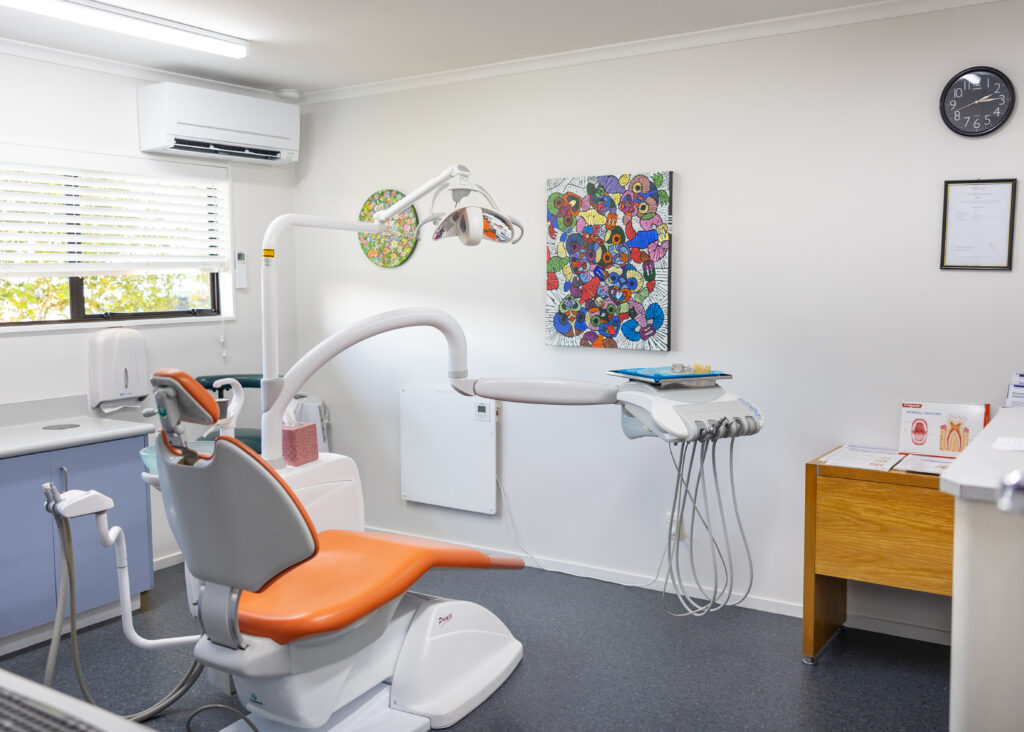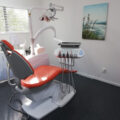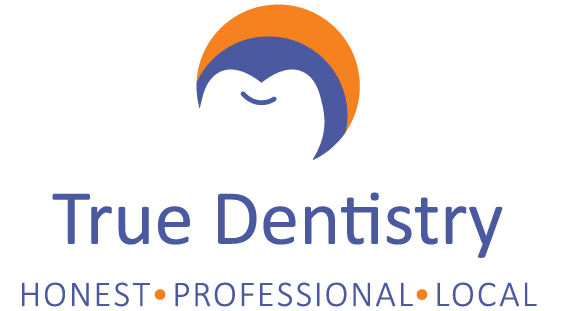Toothpaste, whitening and sealants
What type of toothbrush and toothpaste should I use? Buy toothbrushes with soft bristles. Medium and firm ones can damage...
Read MoreRegular dental exams are an important part of preventive health care.
Urgent dentist appointments are available daily.
Contact us from 08:00 AM in case of an emergency.
We are passionate about delivering local, honest and professional dentistry to the Carterton community and surrounding Wairarapa area.
Trish and Tiff are both highly experienced dental practitioners, with extensive careers and expertise in a range of dental services.
We look forward to taking care of your oral health needs. We believe in true and authentic care within our local community, providing professional advice and service, and understanding the individual needs of our patients.

Trish and Tiff are experienced and qualified dental practitioners who have been improving smiles and solving dental issues for decades.
Our focus is improving oral health outcomes
with community based, family focused and
professional care across a full range of dental
services
We believe in true and authentic care within our local community, providing professional advice and service at affordable prices.
Contact us today to find out about our wide range of services, how we can help you and to book you next appointment.
We are passionate about ensuring access to good dental care in our community. We provide urgent dental care, cosmetic dentistry, hygiene services, root canal and implant treatments and routine check ups.
Regular check ups are important to maintain good oral health. We have appointments available for dental accidents and emergencies.
Testimonials from satisfied clients sharing their experiences and results.



I get very anxious going to the dentist and have not been for a long time. I booked an appointment to see Dr Leabourne at True Dentistry and would recommend her to anyone, made me feel comfortable and at ease.

An excellent dental practice with experienced and caring dentists. I had a dental emergency and was seen promptly on a weekend and the infection and pain was greatly relieved due to the care I received. Two days later I returned to have the offending tooth extracted. The dentist was very gentle and highly experienced. It only took a couple of minutes to remove the offending molar. I was nervous of the extraction and the dentists put me at ease and made the process as comfortable as possible. They are reasonably priced which made my dental treatment affordable. A very professional and friendly dental surgery that I highly recommend.
Get to know the dedicated professionals behind our exceptional dental care, committed to your oral health and well-being.
See our latest news, more information about dental procedures and products, and our tips on how to achieve
good oral health
What type of toothbrush and toothpaste should I use? Buy toothbrushes with soft bristles. Medium and firm ones can damage...
Read MoreUse a fluoride toothpaste if possible Fluoride helps make teeth strong and prevents decay. The American Academy of Pediatrics, the...
Read MoreA regular dental examination, also known as a check-up or routine dental visit, involves a thorough assessment of your oral health by a dentist or dental hygienist. It typically includes a visual inspection of your teeth, gums, and mouth, as well as any necessary diagnostic procedures like X-rays.
The frequency of regular dental examinations can vary depending on your individual oral health needs and risk factors. However, for most individuals, it is recommended to have a check-up every six months. Your dentist may recommend more frequent visits if you have certain oral health conditions or are at higher risk for dental problems.
During a regular dental examination, your dentist will visually inspect your teeth for signs of decay, cavities, or other issues. They will also examine your gums for signs of inflammation or gum disease. X-rays may be taken to assess the health of your teeth and jawbone. Additionally, your dentist will check for signs of oral cancer, perform a professional cleaning, and provide guidance on proper oral hygiene practices.
No, a regular dental examination is typically not painful. However, you may experience some discomfort during certain procedures such as X-rays or dental cleanings. Your dentist will take steps to ensure your comfort throughout the examination, and any discomfort experienced is usually minimal and temporary.
The duration of a regular dental examination can vary depending on the complexity of your oral health and any additional procedures needed. On
average, a check-up appointment may last between 30 minutes to an hour. Your dentist will discuss the specifics of your examination with you
beforehand.
Many dental insurance plans cover the cost of regular dental examinations as part of preventive care benefits. However, coverage can vary depending on
your insurance provider and specific plan. It’s recommended to check with your insurance company beforehand to understand your coverage and any potential out-of-pocket expenses.
Regular dental examinations are essential for maintaining good oral health and preventing dental problems. They allow your dentist to detect and
address issues early before they worsen, saving you from potential pain, discomfort, and costly treatments down the line. Additionally, routine
check-ups help keep your teeth and gums clean, reducing the risk of cavities, gum disease, and other oral health issues.
If you haven’t had a dental examination in a while, it’s important to schedule one as soon as possible. Neglecting regular dental care can lead to the development of dental problems that may require more extensive treatment. Contact your dentist to schedule an appointment and discuss your oral health needs and concerns. Remember, it’s never too late to prioritize your oral health!
Sealants protect against cavities that can form in the natural tiny holes and cracks on the outside of teeth. Kids from about 6 to 12 benefit from having sealants painted and hardened onto the chewing surfaces of their back teeth, or molars. Adults can get sealants as well to protect teeth that don’t have fillings. Dentists or dental assistants put sealants on in an office visit, and it’s painless. They last around 2-4 years.
Stores sell many whitening products, and you can get take-home gels and trays from your dentist, but neither is as strong as procedures done in a dental office If you want to try an over-the-counter whitener, look for one with an ADA seal. Check with your dentist for advice before you buy, especially if
you have dental work or dark stains. And don’t keep using them, or you could damage your teeth.
Caps and crowns cover problem teeth by surrounding them in a material that looks like a real tooth. They use the root and inside of the tooth as a base to build on, then attach with special cement. Veneers and bonding improve your smile by sticking a layer of smoother and whiter materials like porcelain
or resin to the natural tooth. Talk with your dentist about which fix is right for you.
Yes, sweets and foods with acid, like candy and soda, could stick to teeth and lead to cavities. Smoking and chewing tobacco can cause oral cancer and gum disease. While teeth are strong enough to chew ice and tear open packages, this can break them and stress your jaws. Gritting or grinding down on teeth when you’re stressed may crack them. Biting your nails is another bad habit. It pulls your jaw out of position and changes how your teeth fit together.
Visit a dentist if you have any of these issues or see your child having trouble chewing or complaining of soreness:
● Mouth sores
● Jaw pain
● Redness
● Swollen face or gums
● Tooth sensitivity
● Broken teeth
● Dry mouth
● Bleeding gums
● Bad breath or a bad taste in your mouth
Getting checked out right away prevents more serious problems and infections.
Regular exams help spot trouble early to prevent bigger and more costly treatments later.
A dental hygienist will start by cleaning buildup from your teeth. Then the dentist will probe spots on the surfaces and near the gumline with special tools. If it’s been a while between appointments, you may have some sore and sensitive areas.
You should get an exam every 6 months, or more often if your dentist recommends it. Find one who makes you feel at ease and lets you know what to expect. Often the dread of seeing the dentist turns to big relief when the visit is over and you have a care plan set up. Being positive as a parent can help your kids overcome any of their fears.
Medical and dental experts study the use of X-rays and set limits for their safety. Your dentist should take as few as possible. Sometimes dentists may recommend X-rays to diagnose a special problem. Advancements in technology means today’s digital X-rays release much less radiation and are safer than in the past.
Expect to get them during a first exam after not seeing a dentist for a while. This helps check tooth and gum health. If you have gum disease, the dentist may want pictures every 6 months. For regular check-ups, it’s about every 2 years, depending on your dentist’s plan.
Kids have more X-rays done than adults because their teeth are changing and because they get cavities more easily.
Fluoride helps make teeth strong and prevents decay. The American Academy of Pediatrics, the American Dental Association (ADA), and the CDC all agree that kids should use fluoride toothpaste for brushing, taking care not to swallow it. Adults benefit from using fluoride to protect their teeth, too.
Cavities break through the surface enamel of teeth, and they’ll probably get bigger unless you close them off with fillings.
Your dentist will numb your mouth before drilling around the cavity to prep it. A combination of strong materials or a white mix called a composite goes into the cavity soft and then hardens as it dries. You may feel pain or pressure when getting the numbing shot and during the drilling.
Once set, fillings can last a long time but need replacing if they break or wear down.
Buy toothbrushes with soft bristles. Medium and firm ones can damage teeth and gums. Use soft pressure, for 2 minutes, two times a day.
Both powered and manual toothbrushes clean teeth well. Manual brushes with mixed bristle heights or angled bristles clean better than those with all flat, even bristles. Powered toothbrushes may be easier if you have trouble using your hands.
Set a reminder to replace your toothbrush every 3-4 months. Toss it sooner if the bristles look bent or splayed out. Bent bristles don’t clean as well. (They’re also a sign you may be brushing too hard.)
Most toothpastes will clear away bacteria growth and acids from food and drinks. Toothpastes with the American Dental Association (ADA) Seal of Acceptance always have fluoride, which strengthens and protects teeth. If you want a non-fluoride option, stores carry toothpastes and powders made with natural ingredients that don’t have ADA testing and approval.
If cold or hot food or drinks make you cringe, pick a toothpaste for sensitive teeth and let your dentist know.
There’s no getting around the need to get around your teeth daily with dental floss. It clears food and plaque from between teeth and under the gumline. If you don’t, plaque hardens into tartar, which forms wedges and widens the space between teeth and gums, causing pockets. Over time, gums pull away and teeth loosen.
Either waxed or unwaxed floss will do the job. Using floss picks or interdental brushes is another easy option.
Mouthwashes for cavity protection, sensitivity, and fresh breath may help when you use them with regular brushing and flossing — but not instead of daily cleanings. Your dentist can recommend the best type for you.
Some people need twice-daily rinses for gum health or alcohol-free washes for dry mouth.
Kids under 6 shouldn’t use mouthwash to avoid the chance of them swallowing it.
